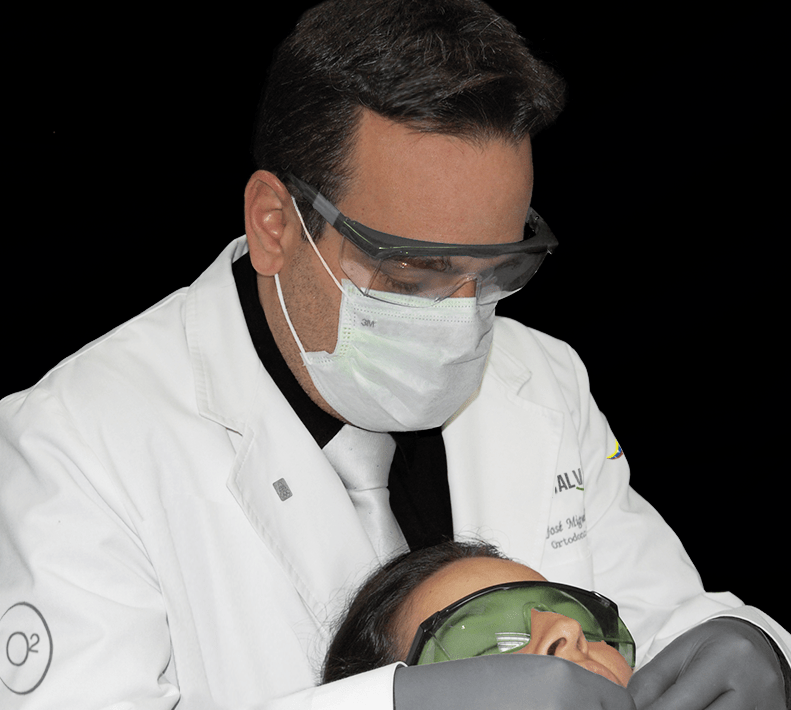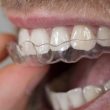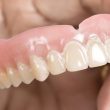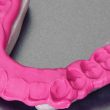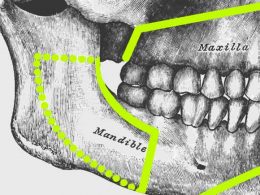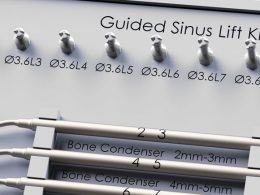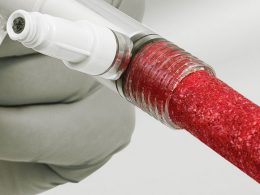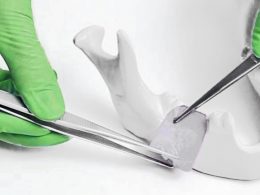Table of Contents
If you are concerned that you may have gum disease, there is a good reason for it. This type of pathology affects almost half of the world’s adult population, no less than 4,100 millions of people!, and it is one of the most common reasons why patients visit the Dentist.
So, are you at risk?
Gum disease (known as periodontal disease) has serious consequences for your dental and overall health. It is a chronic infection that can develop rapidly in people who lack good oral hygiene technique. At worst, it results in excessive loosening of the teeth, which then need to be removed.
We know that gum bleeding is closely related to the way we brush and floss, and most people do not do it properly. But periodically removing plaque is only part of the story. Periodontal disease is a multifactorial etiology entity, many times associated with other diseases or systemic conditions.
Although the classification of periodontal diseases is very broad and complex, for the purpose of this post it is enough to know that there are basically 2 main variants. The first is gingivitis, the mildest and reversible form, and limited only to soft tissues. The second is periodontitis, a more advanced form that also affects the alveolar bone, and whose damages are generally irreversible.
If you suspect that you have such a condition, these seven signs may tell you it is time to seek specialized care.
1- Bleeding Gums
The gums should not bleed when you brush and floss. If it happens, it is a sign that you are doing it wrong (traumatic brushing), or that your gums are already inflamed by the excessive accumulation of bacteria inside.
Increased tissue size, color change to deep red, bad odor and sporadic pain; also usually accompany bleeding. Tooth sensitivity can also appear, and is usually the result of receding gums due to the advancement of the disease.
2- Halitosis or Bad Breath
Oral malodor appears to arise from the interaction between bacteria and specific substrates, such as proteins and peptides, which are more abundant in the gum fluid of individuals with diseased gums. Proteins and peptides are hydrolyzed by periodontal pathogens, generating highly volatile sulfur compounds, which are responsible for the characteristic bad breath.
3- Gingival Recession
Do you notice that your teeth are longer? This may be due to the fact that the gums are receding, and it may be a clear sign that periodontal disease is progressing.
However, gingival recession can also be the result of anatomical and morphological alterations of genetic origin (very thin gums), previous orthodontic treatments, poorly fitting prostheses or high muscle attachments.
4- Tooth Sensitivity
The recession of the gums or the formation of periodontal pockets, can cause sensitivity in the teeth. In these cases, sensitivity can be a sign of gum disease. Chronically inflamed tissue exposes the surface and the cementum of the tooth root. Root exposure makes the tooth more susceptible to sensitivity, cavities, abfractions (wears on the cervical and root surfaces) and loss of bone support.
Tooth sensitivity is usually experienced during the consumption of hot or cold drinks, although it is also usually activated by sweet and acidic substances.
5- Migration of Teeth and Appearance of Diastemas
Diastema is called the space or separation between two teeth.
An acquired diastema (which forms in adulthood) can be a clear sign of advanced periodontal disease. Gingival inflammation, a reduction in the height of the supporting bone and an imbalance in bone remodeling, can contribute to teeth displacement; a condition known as pathological tooth migration. This usually affects the anterior teeth, and it can manifest itself in very different ways.
6- Tooth Mobility
We must know that teeth normally, in a healthy state, have a slight mobility, but that it is practically imperceptible to sight and touch. Tooth mobility should be considered pathological when it is no longer minimal, when it becomes perceptible and quantifiable; and therefore, a sign of periodontal disease.
The fact that the teeth begin to move, indicates that the disease has progressed, has invaded and destroyed the supporting alveolar bone and has transformed into periodontitis.
7- Hyperglycemia
Periodontal disease is considered the sixth complication of diabetes. Scientific studies show that there is a bidirectional relationship between these two diseases. This means that, on the one hand, diabetes increases the risk of periodontal disease; being together with tobacco, the main risk factors for periodontitis.
But also, on the other hand, periodontal disease can affect diabetes, making it difficult to control glycemia (blood glucose level). The alteration of the response of the immune system participates in the origin and evolution of diabetes mellitus and its complications, as well as in that of periodontal disease.
General Measures to Control Periodontal Diseases
The first step is to visit your Periodontist for a dental exam and professional cleaning. After a good clinical and radiographic diagnosis, the Specialist will plan the most appropriate treatment for your particular case.
Ultrasound cleanings, antibiotic therapy, root planings and scalings, subgingival curettages, flap surgeries, bone grafts and membranes placement, occlusion adjustments and divers prosthetic rehabilitation procedures; may be necessary to preserve all or most of your teeth.
However, the final success of the treatment will always depend on good oral hygiene, which includes an adequate brushing technique and correct use of dental floss.
Once your oral hygiene is in order and the first phase of professional treatment has been completed, the extent and progress of the disease can be accurately assessed.
“The Damages of Periodontal Disease Can Be Irreversible, That Is Why It Is So Important to Detect and Treat It in Its Initial Phases”.
DENTAL TIP
If your gum disease was early and reversible, you only need to worry about maintaining and practicing good oral hygiene techniques. If on the other hand, it has already advanced to periodontitis with formation of pathological sacs and bone loss, you should maintain a lifelong control with your Specialist.
Remember that advanced periodontal disease is a chronic pathology that cannot be cured, but that can be controlled to prevent its progression. This is why early diagnosis of gum diseases is so important.
Making Dentistry Care Simple and Affordable…
DENTAL VIP is one of the most modern and recognized private dental clinics in Venezuela, and it could be your trustworthy partner in dental treatment abroad offering you: over 12 years of experience in dental tourism, excellent Dentists, high quality treatment covered by guarantee, comprehensive care, supportive and helpful staff, affordable prices and comfortable stay at our recommended hotels in Caracas.
All Dentists working at DENTAL VIP have a long experience in Dentistry and are highly qualified. Our Dentists, apart from having fourth level studies, regularly take part in domestic and foreign trainings, conferences and seminars.
The quality is guaranteed, and the price too! Do not waste any more time, contact us today and save up to 70% on extensive or highly complex dental treatments.
